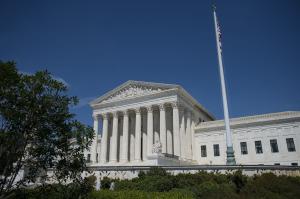WASHINGTON, June 23 (UPI) — The U.S. Supreme Court on Thursday upheld a University of Texas policy that allows race to be used as a factor for admissions, a measure likened to affirmative action.
The court voted 4-3 in favor of upholding a Court of Appeals decision in the case Fisher v. University of Texas at Austin.
“The University of Texas at Austin has a special opportunity to learn and to teach. The university
now has at its disposal valuable data about the manner in which different approaches to admissions may foster diversity or instead dilute it,” Supreme Court Justice Anthony Kennedy wrote in the opinion of the court. “The university must continue to use this data to scrutinize the fairness of its admissions program; to assess whether changing demographics have undermined the need for a race-conscious policy; and to identify the effects, both positive and negative, of the affirmative-action measures it deems necessary.”
Kennedy said the University of Texas should serve as a laboratory to carry out tests to achieve intangible “qualities which are incapable of objective measurement but which make for greatness” in which to improve race diversity.
“The court’s affirmance of the university’s admissions policy today does not necessarily mean the university may rely on that same policy without refinement. It is the university’s ongoing obligation to engage in constant deliberation and continued reflection regarding its admissions policies,” Kennedy wrote.
Abigail Fisher, who was denied admission in 2008 to the University of Texas at Austin, argued the university’s admission policy was unconstitutional. Fisher said she was denied admission because she is white. The school said she did not meet the qualifications, which include graduating in the top 10 percent from any Texas high school.
The state’s “Top 10 Percent Plan” allows high-ranking Texas high school graduates automatic admission to a public university in the state. The plan was designed to bolster minority representation in public high learning institutions. Fisher finished 82 out of 674 in her class, taking her out of the running for automatic admission. In addition to the plan, the school reviews some applications based on factors besides grades, including achievements and accolades. Fisher said a less-qualified minority student edged her out of that spot.
In 2013, Supreme Court ruled 7-1 to send the university’s admission plan back to lower court to determine if the university could achieve diversity in other ways. The court sided with the university so Fisher appealed to the high court for the second time.
Currently eight states — Arizona, California, Florida, Michigan, Nebraska, New Hampshire, Oklahoma, and Washington — have laws that prohibit race as a consideration in admission to public universities.
Amy R. Connolly contributed to this report.

COMMENTS
Please let us know if you're having issues with commenting.